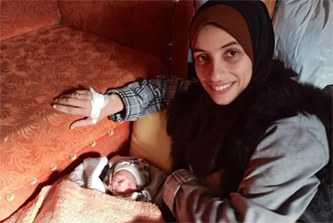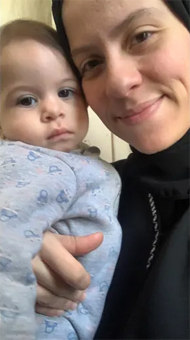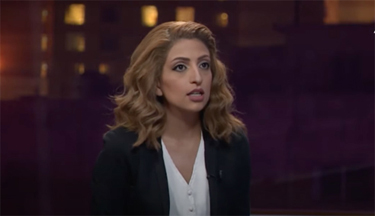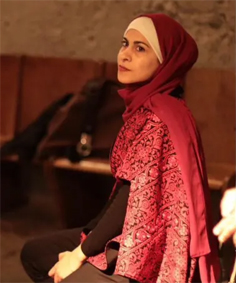|
CRY FREEDOM.net
formerly known as
Women's Liberation Front
MORE INSIGHT MORE LIFE
Welcome to cryfreedom.net,
formerly known as Womens
Liberation Front.
A website
that hopes to draw and keeps your attention for both the global 21th. century 3rd. feminist revolution as well
as especially for the Zan, Zendegi, Azadi uprising in Iran and the
struggles of our sisters in other parts of the Middle East. This online magazine
that started December 2019 will
be published every week. Thank you for your time and interest.
Gino d'Artali
indept investigative
journalist
radical feminist and women's rights activist
'WOMEN, LIFE, FREEDOM'
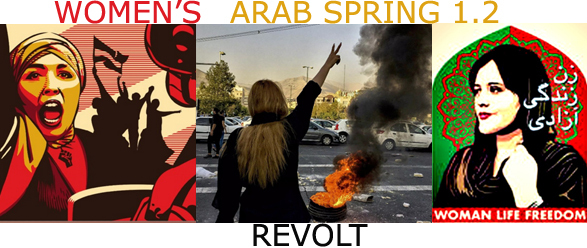
You are now at the section on what is happening in the rest of the Middle
east
(Updates
August 3, 2024)
Click here for the
Iran 'Woman, Life, Freedom' section
Updated August 2, 2024
For the 'Women's Arab Spring 1.2' Revolt
news
click here
Updated August 2, 2024
SPECIAL
REPORTS ISRAEL-GAZA GENOCIDAL WAR
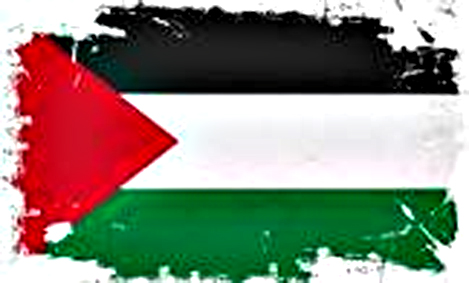
CLICK HERE ON HOW TO READ
ALL ON THIS PAGE
|
SPECIAL
REPORTS PALESTINE

FROM THE RIVER TO THE SEA - FREE PALESTINE
July wk4 P3 --
July wk4 P4/2-- July
wk4P4 -- July
wk4 P3 -- July
wk4 P2 --
Click here for an overview by week in 2024
When one hurts or kills a women
one hurts or kills hummanity and is an antrocitie.
Gino d'Artali
and: My mother (1931-1997) always said to me <Mi
figlio, non esistono notizie <vecchie> perche puoi imparare qualcosa da
qualsiasi notizia.> Translated: <My son, there is no such thing as so
called 'old' news because you can learn something from any news.>
Gianna d'Artali.
Dear reader, as history always repeats itself in all wars, wherever and
whyever they take place, it are always the women and often also
(widowed) mothers and (orphaned) children that are targeted and victims
first. That is why they need our utmost attention and moreso support and
so hear their stories
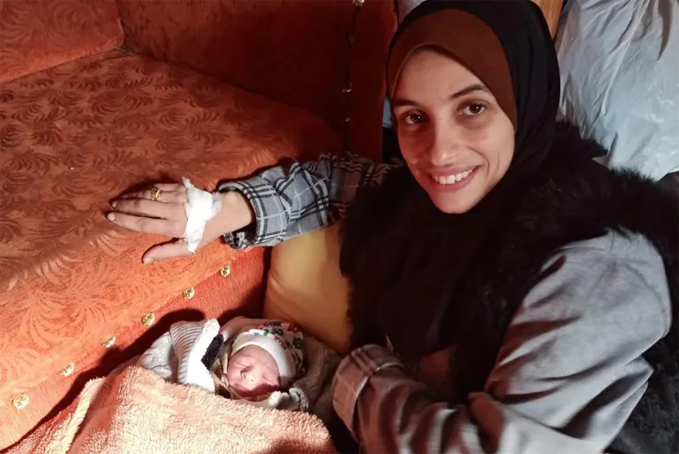
Al Jazeera - July 28, 2024 - By Maram Humaid
<< 'My baby girl was born on the street': A traumatic birth in Gaza
On a cold night, Alaa gave birth on a dark road. Afterwards, she and her
baby had to find a way to get to the hospital.
Every morning, Alaa al-Nimer wakes up to bathe her six-month-old
daughter, Nimah. There is no running water - there hasn't been for many
months - and the water she uses sparingly is collected from distribution
points close to a relative’s house in Gaza City's northern Sheikh Radwan
neighbourhood. Despite the hardships Alaa and her family now endure, she
is determined to treat her green-eyed daughter to a daily bath.
The 34-year-old mother of three says her daughter's smile is a "balm for
her soul" during a time of "darkness".
"My baby girl was born on the street," she explains shyly.
She describes it as the most difficult day of her life.
Displaced more than 11 times
Alaa and her family - her husband, Abdullah, 36, and their sons,
Mohanned, seven, and Yamen, five - have been on the move almost since
Israel's war on Gaza began in October.
After Hamas-led attacks in southern Israel on October 7, in which 1,139
people were killed, Israel has launched a war on Gaza that has killed
more than 39,000 people.
When their home in Gaza City's Zeitoun neighbourhood was targeted in
October, the family first moved to a relative's home and then to
neighbours' homes.
"[We were] displaced more than 11 times," Alaa says with a tired voice.
Her family had decided to remain in northern Gaza despite Israeli forces
instructing people to move south. "It was a matter of principle," Alaa
says. "We realised that no place was safe." On one occasion, Israeli
tanks surrounded the building they were staying in and opened fire. Alaa,
her sons and about 25 other people who were inside escaped through an
opening created when a shell struck the building earlier in the war. She
describes their escape as "miraculous". But it was the middle of winter
and Alaa was eight months pregnant. She walked eastward for four hours
in the cold with her children to escape the tanks. At the time, her
husband was elsewhere with his elderly mother, who has difficulty
walking. Alaa, her sons and the people from the building took detours to
reach the Old City, where they sheltered in a shop near a mosque until
it was safe to return.
'Please, is there anyone?'
Alaa desperately hoped the war would end before she was due to give
birth. "I never imagined going into labour during the war," she says.
She was at her sister-in-law’s house when she first started to feel
labour pains. "I tried to lie to myself," she says, by insisting she
wasn't about to give birth. But the pain grew worse. It was after 10pm
on a wet, cold January night, and Alaa could hear the sounds of Israeli
bombs landing nearby.
She called her mother and sister who were staying nearby while her
husband went to look for a car to take her to the hospital. Alaa waited
on the street. Her labour progressed quickly, but due to the lack of
fuel and the late hour, Abdullah couldn't find a car, and the
communication networks were too weak to call for an ambulance.
Alaa stood on the side of the street, screaming for help. She remembers
praying and thinking: "Please, God, not now. I want to be in the
hospital." She was terrified for her baby's life.
But by the time her husband returned, she was already giving birth. Her
mother and sister also arrived, running to her in shock. Abdullah caught
his daughter's head in his hands and shouted out for scissors to cut the
umbilical cord, which her cousin who arrived with Alaa's brother brought
out from a medical kit. Desperate to find medical care for his wife and
newborn daughter, Abdullah eventually managed to find a car to take them
to a maternity hospital 5.5km (3.4 miles) away. Alaa climbed in with her
baby and her mother while her husband and brother ran ahead of them. But
the car stopped after just a few metres. It had run out of fuel.
"The street around me was completely dark. There was no one in sight,"
Alaa recalls.
"My cousin carried the baby girl, wrapping her in his coat against the
cold, and walked quickly in front of us, fearing for her life. He guided
us with the flashlight on his mobile phone, saying, 'Turn right, then
left' to guide us." Alaa was bleeding. Her mother and sister walked
alongside her, crying.
"My mother walked in the middle of the street, screaming, 'Please, is
there anyone? Is there any car to take us? Please, we have a newborn
baby girl and her mother just gave birth.'
"But there was no answer."
They walked for about an hour before they found a minibus to take them
the short remaining distance to the hospital. "We got into the car,
crying with both joy and fear," Alaa says.
At the door to the hospital, a doctor was waiting, informed by Alaa’s
husband and his brother who had arrived before them.
"The doctor took me in her arms and immediately took me to the maternity
ward," Alaa recalls.
A healthy baby and a spoon of halwa
When she woke the next morning and the doctors told her her daughter was
doing well, Alaa says her "happiness was indescribable".
"I believe God was with me," Alaa reflects.
Amid the joy of learning that her daughter had survived the harrowing
birth, Alaa recalls a small moment when a cousin offered her a cup of
fresh orange juice squeezed from an orange she had picked from some
nearby land and kept hidden. "It was the first and last time I had fresh
juice during the war," she says. Then there was the small box of halwa
her husband had put in her birth bag. "Every day before I gave birth, I
checked the bag to make sure it was still there," she recalls.
That day she took a deep breath before savouring the first spoonful. "I
had forgotten what it tasted like during the war," she says.
Six months have passed since then, and Nimah is healthy. Alaa continues
to breastfeed due to the lack of baby formula and food, even as she
herself is unable to eat properly, given the food shortages. Nimah has
begun to laugh and coo, and everyone in the house in Sheikh Radwan
adores her. But her mother is sad that she was born and is growing up in
such difficult circumstances. Alaa's family has felt the full force of
this war. Her children must survive on a quarter of a loaf of bread each
day, and the family mourns Alaa's 26-year-old brother, also named Alaa,
whose body was found near their bombed-out house at the end of December.
"My child was born from the heart of death," Alaa says. "But since that
day, hope has not left my heart." >>
Source: Al Jazeera
https://www.aljazeera.com/features/2024/7/28/my-baby-girl-was-born-on-the-street-a-traumatic-birth-in-gaza
Women's
Liberation Front 2019/cryfreedom.net 2024


